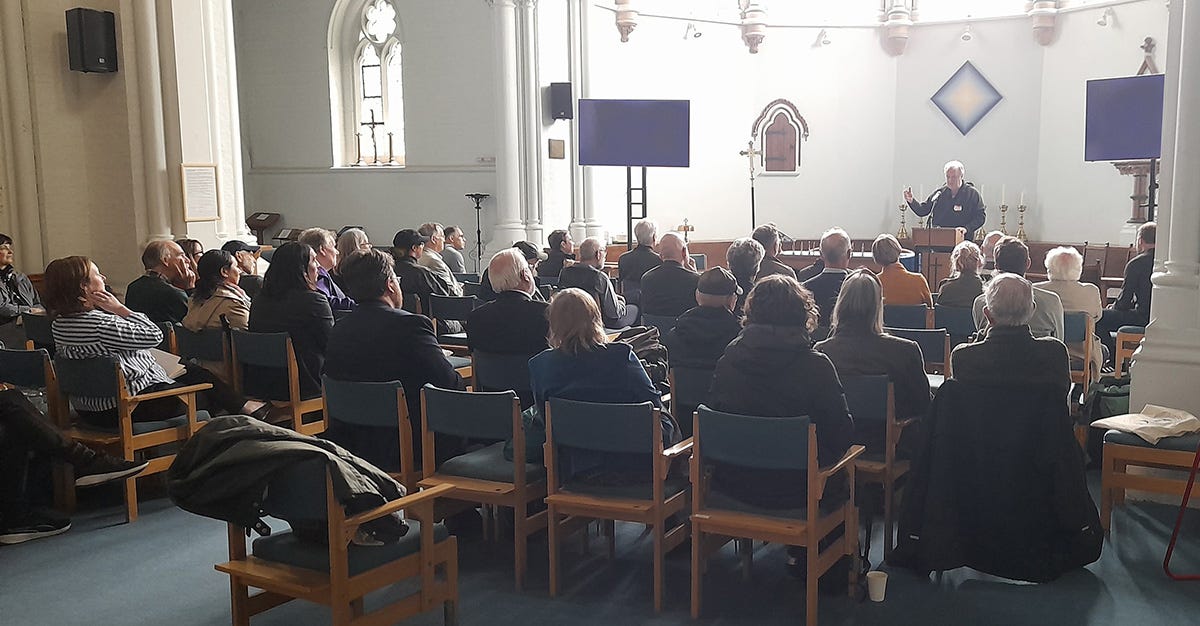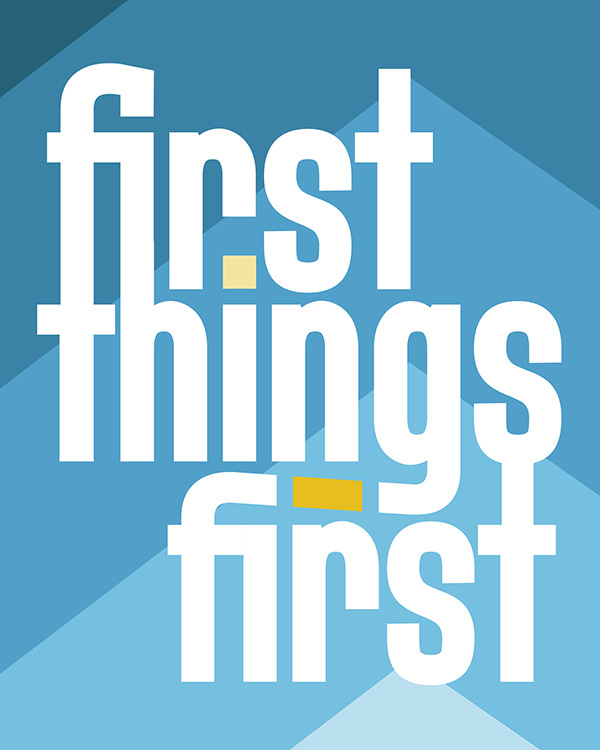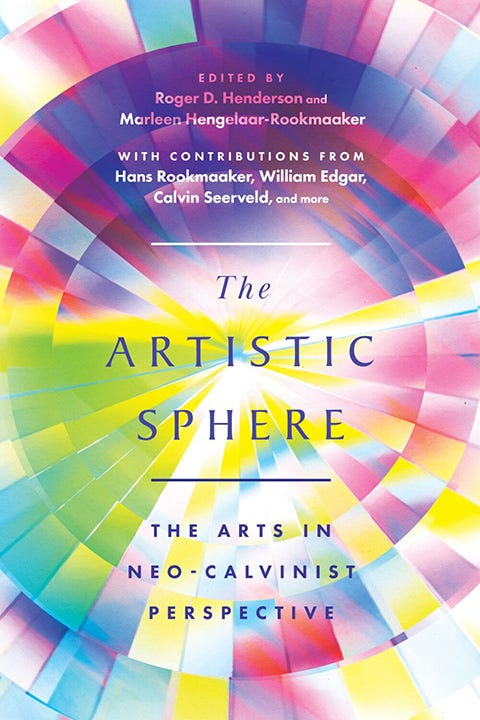On the morning of the 11th of June, 60-plus delegates, members of KLC’s international community, made their way to Cambridge and all the way to the very end of French’s Road. Arriving at our office at Chesterton Mill, they were greeted with a cup of coffee and a bag heavy with books. From here, it was a short walk to St Luke’s Church, the venue of our first annual conference.
The church, built in the 19th century during the Gothic revival in architecture, admits worshipers through heavy, wooden doors hung on iron hinges from thick stone walls. The church’s dark, labyrinthine corridors lead eventually to a spacious sanctuary. Here, one’s gaze can soar, but will inevitably be drawn towards the altar where high eastern windows create a flood of the most pleasing, soft light, which, in combination with the turquoise ceiling and its golden ribs, creates a heavenly atmosphere. It is a place where silence seems to be the native language.
The theme of this, our first conference, was “First Things First”: spirituality and public theology. Craig Bartholomew, in his opening lecture, set the agenda. He started with a question. “How do you feel?” – such a simple question, but one that brought us all together into an awareness of our emotional state there in that sanctuary and in that moment. A look inward. Then came another question, “How do you read the signs of the times?” A look outward. Geopolitically and culturally, we find ourselves in a time of great turmoil. Every day we witness violence and destruction on a grand scale – there are reports of atrocities and allegations of war crimes – in the case of Israel’s war in Gaza, even genocide, in which our own (Western) governments are accused of being complicit.
Public theology is about articulating how the gospel relates to all areas of life – cultural, intellectual, political, spiritual; to wrestle seriously with all the complexities of the world. The picture can be dark. And when it is, theology does not come as a sort of intellectual anaesthetic to make us feel better – or feel less. In fact, Craig says, public theology can make it worse. When we come to Christ we are awakened to the value of human life, to the importance of justice, to a vision of a world where peace will reign, and so our anguish at evil and suffering in the world becomes more poignant. Public theology requires us to confront ambiguity and complexity with hope and courage. We need resilience and perseverance for the task – and for that, we need to be deeply rooted in a spirituality that can sustain us.
A key Bible text behind this theme is the account of Jesus’ visit to Mary and Martha. “Martha, Martha, you are anxious and troubled about many things, but one thing is necessary” (Luke 10:41–42). The foundation for public theology, as for any Christian initiative or ministry, must be “the one thing necessary,” the good portion, which Mary chooses. Mary “sat at the Lord’s feet and listened to his teaching” (10:42). As a small team, even though the conference was to explore the way of Mary, we often felt like Marthas, running around to welcome our guests as best we could. In the space of an hour, I found myself serving coffee, meeting delegates, running across the road to buy milk from the grocery store, unloading boxes of fruit, locking and unlocking meeting rooms, and hoping to make it back in time to present or lead a song at a plenary session!
I imagine that many of us think of slightly different things when we use the word spirituality. In Western culture, the term is often vaguely understood as a set of privatised practices of our own invention. This sort of privatised spirituality is characterised by a fixation on the self and it is easily taken by new fashions and fads. It is therapeutic in nature. But Christian spirituality has a much broader sense than this consumer-driven spirituality. At its core, Christian spirituality is a de-centring of the ego, as Craig emphasised in the inaugural Jon Hyde Lecture on the second day of the conference. But this is not a decentring to create a void, as some forms of Eastern mysticism would have it, but a decentring of the ego in order for Christ to occupy the centre. It cannot be privatised. Christ is both King and Priest, Lord in every sphere.
It would be a contradiction if a conference about spirituality were merely a matter of talking, which is why the First Things First was characterised by communal spiritual practices. Plenary sessions were opened with a short liturgy, reflection on Scripture, singing, and lengthy moments of silence. The programme was designed to provide ample time between sessions to linger and reflect. We endeavoured to bring spiritual practice and intellectual exploration together. My experience was that they were in perfect harmony.
Besides the plenary sessions that addressed public theology and spirituality, delegates could choose to attend any of seven electives: spirituality, politics, the arts, PhD research, mathematics and physics, and missions; a diversity of subjects that reflects the KLC’s vision for Christian research “across the disciplines.”
As KLC’s art manager, I oversaw the arts track of the conference: three elective sessions and a plenary session dedicated to the arts. Rachel Yonan, a visiting scholar at Jesus College, Cambridge, delivered a wonderfully wide-ranging lecture, exploring the way the dimensions of physics and meaning mysteriously coexist within music. She made musical performances of Bach on the viola part of her lecture, which, there in the light of the church’s apse, were sublime. On the second day, we were joined by the playwright and author, Murray Watts. His talk, delivered in one of the church’s side chapels where we could huddle around him in a circle, was full of wisdom and practical advice for artists of faith. His reflections on the spiritual practices that could bring about Christian formation in the world of the arts were profound. Bishop Graham Kings led the group in a reflection on a painting of Esther by the Bulgarian artist Silvia Dimitrova. This was a wonderful demonstration of the way the visual arts can lead us into deeper reflections on Scripture. Our plenary session presented an opportunity to mark the launch of The Artistic Sphere, co-edited by Marleen Hengelaar-Rookmaaker and Roger Henderson.
In the months following the conference, there is a particular phrase that has lingered in my mind, a phrase by Sister Wendy Beckett, quoted by Craig in his Jon Hyde lecture: “Seek obscurity.” Trying and often feeling unable to choose the way of Mary while fulfilling the tasks of Martha, this phrase has helped me to present myself as a vessel and to let go of the result of my work. To go back to the one thing necessary. It has helped me to silence the ever-present voice of the ego that always vies to be the centre of attention.
Otto Bam is the Arts Manager for the KLC, the ArtWay.eu editor and an Associate Fellow of the KLC.






